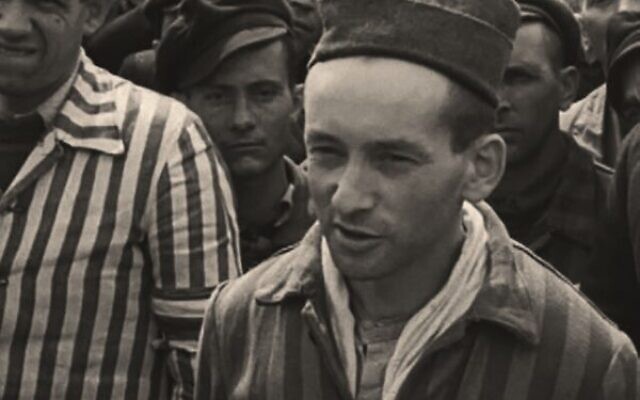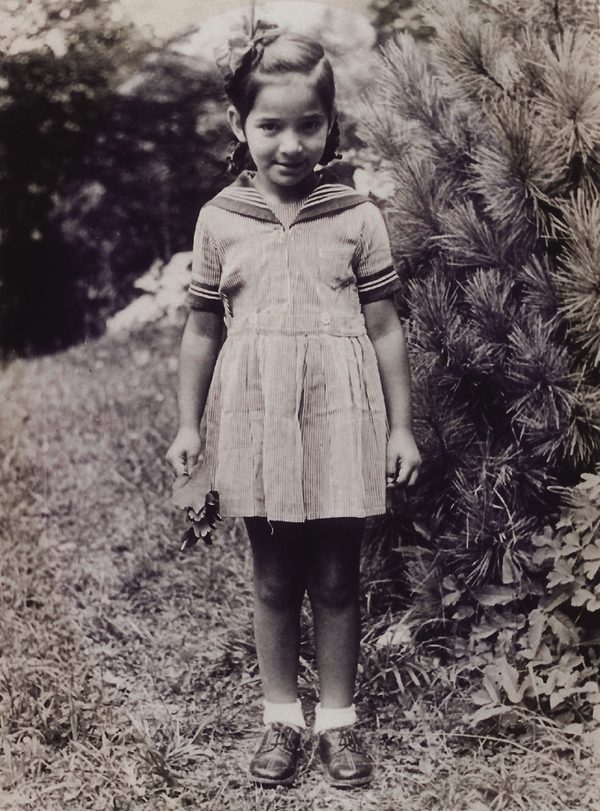It all started when Karen was young. Despite her mother and her grandmother never sharing their experiences during the Holocaust, Karen’s grandmother Alicja asked to see Schindler’s List. About a week later, Karen recalls with vivid detail that Nana Alicja started telling her about Dr Mengele and Auschwitz. They were eating lunch – it was risotto.
“She told me details like his white gloves, and how he lined them up in the snow and pointed to certain women,” Karen told The AJN over the phone from her home in the US. “She never knew whether she was going to be pulled out of line.”
Karen recalled growing up around a lot of Hungarian and Polish people in her grandparents’ living room in Melbourne. They were mostly atheist, or non-practising. It wasn’t until she moved to the US that she suddenly found herself surrounded by Jewish neighbours and colleagues. She became fixed with finding out what happened to her family.
“I asked my grandmother if she’d let me interview her. I flew home and interviewed her over seven days. And on the last day, she told me she worried what happened to her would happen again,” Karen explained. “I promised her that I would write down her story.”
But Karen’s career took off, and the story was put on a backburner. Until she Googled her grandparents’ surname and found a film clip of someone who looked familiar.
“I stumbled upon a US Army film clip that was shot days after the Americans liberated Dachau,” she recalled. “I found myself looking at this man in the striped pyjama uniform, and realised it was my grandfather. The same grandfather who had carried me on his shoulders when I was a child and kissed me when I visited.”
Karen said she always knew him as an atheist, but “the interviewer asked him why he was in prison, and he answered, ‘because I am a Jew’”.

Karen’s family story is quite an incredible one.
When Karen was nine, her mother, Joasia, received a letter from a stranger who told her that she was born in the Warsaw Ghetto. When the Nazis began loading her family onto trains headed for Treblinka, Joasia was given enough sedative that she might not ever wake up and smuggled out in a backpack. The letter also stated that when Joasia was 11 months old, her mother Irena was murdered. Shortly after, she was rescued by an SS officer. All of this was kept a secret from Joasia. And subsequently, from Karen.
“When I was a teenager, I discovered that the grandparents I adored weren’t my biological grandparents,” Karen explained. “The woman who I knew as my grandmother was actually my mother’s aunt.” Alicja was Irena’s sister. And despite the frosty relationship between Alicja and Joasia – much of which is documented in the book – Karen discovered that Alicja had risked her life multiple times to save her mother, including bringing her to Australia.
Karen explained that writing Irena’s Gift helped her process everything she found out. Along the way though, she discovered that Alicja was telling her the story that was “safe” to tell.
“I learned that the gaps in her story was where the truths were,” Karen said. “What she didn’t say to me was more alarming than what she did say. And that’s why the book took me 10 years to write, because it’s meticulously researched. I needed to verify the things she didn’t tell me as well as the things that she did.”
Karen gave the example of a needle and thread. When Karen’s button fell off one day and she asked for a needle and thread, she was told by Alicja that she had never sewn a day in her life and didn’t keep anything like that in her home. Yet during another conversation, when Karen asked Alicja to describe the worst thing that ever happened to her, Alicja recalled sewing a nightdress in Auschwitz made from scraps of fabric that she traded for bread.
“I don’t need to tell you that taking a uniform off and putting on a nightdress made her feel human,” Karen said. “And one morning, the SS found the nightdress and took it away. The stories she told me were the ones that were safest for her to remember.”

Karen said her research meant going behind the wall of trauma to dig into the gaps of her grandmother’s story.
The secrets, Karen said, were endless.
One of the secrets she discovered was that her grandfather – a lawyer before the war – would make the prisoners recount specific crimes of the SS officers, making them repeat the names of the officer. What kept him alive was bringing these people to justice. After the war, he worked with the US Army to prepare for the Nuremberg Trials. All of this was discovered through Karen’s research.
While Irena’s Gift reveals many secrets, ultimately it weaves together mystery, history and memoir to tell the story of a family. It’s a multi-generational, mother/daughter story.
And, as Karen explained, she wrote the book to show readers what happens when we don’t stand up and help.
“I wanted to show how to not be indifferent, and how to fight for democracy and be civil to each other. I wouldn’t have written this book if it wasn’t for a few people who showed empathy and kindness towards my mother,” she said.
And, to alleviate Nana Alicja’s fears that what happened to her would never happen again.
Irena’s Gift is published byPenguin Random House, $35 rrp.


comments